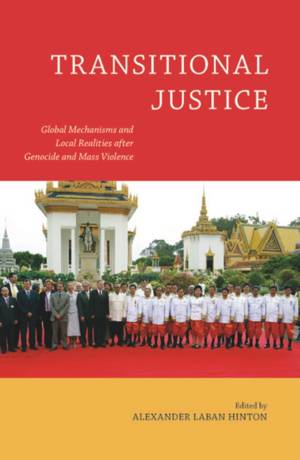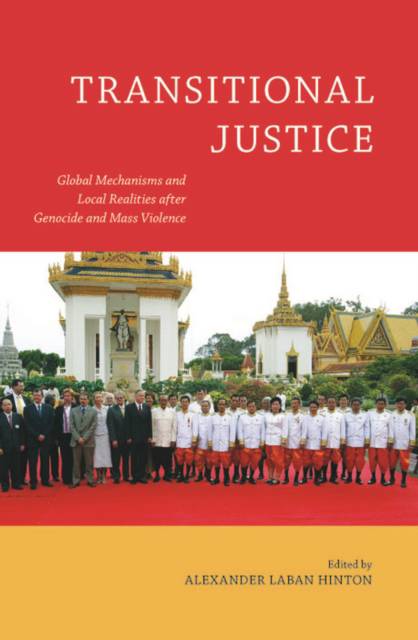
- Afhalen na 1 uur in een winkel met voorraad
- Gratis thuislevering in België vanaf € 30
- Ruim aanbod met 7 miljoen producten
- Afhalen na 1 uur in een winkel met voorraad
- Gratis thuislevering in België vanaf € 30
- Ruim aanbod met 7 miljoen producten
Zoeken
Transitional Justice
Global Mechanisms and Local Realities After Genocide and Mass Violence
€ 56,95
+ 113 punten
Omschrijving
How do societies come to terms with the aftermath of genocide and mass violence, and how might the international community contribute to this process? Recently, transitional justice mechanisms such as tribunals and truth commissions have emerged as a favored means of redress. Transitional Justice, the first edited collection in anthropology focused directly on this issue, argues that, however well-intentioned, transitional justice needs to more deeply grapple with the complexities of global and transnational involvements and the local on-the-ground realities with which they intersect.Contributors consider what justice means and how it is negotiated in different localities where transitional justice efforts are underway after genocide and mass atrocity. They address a variety of mechanisms, among them, a memorial site in Bali, truth commissions in Argentina and Chile, First Nations treaty negotiations in Canada, violent youth groups in northern Nigeria, the murder of young women in post-conflict Guatemala, and the gacaca courts in Rwanda.
Specificaties
Betrokkenen
- Uitgeverij:
Inhoud
- Aantal bladzijden:
- 288
- Taal:
- Engels
- Reeks:
Eigenschappen
- Productcode (EAN):
- 9780813550688
- Verschijningsdatum:
- 23/01/2011
- Uitvoering:
- Paperback
- Formaat:
- Trade paperback (VS)
- Afmetingen:
- 150 mm x 226 mm
- Gewicht:
- 385 g

Alleen bij Standaard Boekhandel
+ 113 punten op je klantenkaart van Standaard Boekhandel
Beoordelingen
We publiceren alleen reviews die voldoen aan de voorwaarden voor reviews. Bekijk onze voorwaarden voor reviews.










